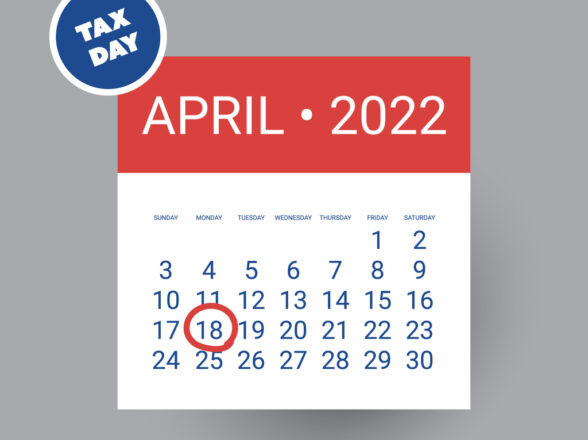Blog
7 Action Items for a Successful Job Change

Can life get anymore busy and hectic, particularly as the world deals with the ongoing COVID-19 pandemic and its massive disruption to even the simplest of daily activities? We hate to ask that question as, yes, it can always get worst, unfortunately. In the course of this new way of life we find ourselves in, carving out time to properly attend to our personal finances is a steep challenge to say the least.
The news is filled with reports of a very active job market as people re-evaluate their careers, place in life, and even where they chose to live. A job or career change may very well be one of the life events that cause you to prioritize your finances and take a look at the whole picture.
Even if you are a seasoned professionals that knows your role by heart, you are still onboarding a whole new team, location, and policy expectations. Your on-paper salary isn’t the only number that has changed. You likely have a new set of company insurance, new retirement plan, and maybe even a new home and neighborhood if you relocated for the job.
During this transition, you have the opportunity to improve and rebuild your finances. After all, you’ll already be handling the paperwork for all your accounts. Why not make more improvements and also change the arc of your financial success is a very positive way?
Changing jobs is the perfect opportunity to fine-tune your finances for the new role. Get the most financially from your new job by adapting your finances to be both practical and robust. Here’s our seven-step checklist for how you can improve your finances when starting a new job:
1) Income to Cost of Living Calculation
Each new job has a new balance of income to cost of living. It’s likely your hourly or salary has changed from one roll to the next, but your monthly costs may have changed as well. If you relocated for the job, even a short distance, your cost of living may have changed, Housing costs, local grocery prices, and available services will influence your expected budget. At the same time, your new wages will influence how easily your lifestyle can be covered.
Recalculate your wages and your expected cost of living and use this as a baseline for your future financial plans. This lets you know what your real expenses are and your real potential for savings and debt fulfillment.
2) Adapt Your Insurance Plan for Job
Insurance coverage is something to be very careful and proactive about when changing jobs. It is very likely that your coverage will change drastically if you have changed health plans and providers. You will likely need to pick new on-plan doctors and the services they offer that are covered by your plan. You will likely have a new balance of dental, visual, and emergency medical service coverage, so check in on the new job’s policies.
Then address the rest of your insurance portfolio. Home insurance, car insurance, disability, and life insurance, and business insurance may be necessary. If your role requires insurance, make sure that either carries over or is covered by your new employer.
3) Take Advantage of the New Employee Perks
Each employer offers a unique set of benefits ranging from insurance plans to catered lunches. With the rise of health and wellness perks, there are a great many benefits that will influence the cost of your lifestyle – and lower the cost of improving your lifestyle.
Take full advantage of the benefits from your new job and adapt your lifestyle costs to what is already covered. With a gym membership, you can eliminate the cost of your current gym from the household budget. With subsidized childcare or sponsored after-school programs, you can reallocate your babysitting funds.
You might reduce your entertainment costs by attending team or work-sponsored activities, or reduce your grocery by catching breakfast and lunch at the office. For students and recent students, many jobs offer programs to sponsor tuition and pay student loans. Work perks are there to work for you.
4) Roll Over Your Previous Retirement Account(s) to Job
Every employer opens and manages a new 401K or other employer-sponsored retirement account in your name. These accounts are handled based on the financial policies of the company and this changes from job to job. After you leave a job, your previous emplpoyer-sponsored savings account continues to exist, but its easy to let it go neglected. Sometimes employers can force you to leave the plan as you are no longer an employee and are now purely a cost to them.
The good news is that you can roll over all your previous retirement accounts into your current employer account, or into a pre-existing Traditional or Rollover IRA. A financial advisor is usually well-positioned to help you make this decision based on a variety of information like fees and availability of different investment options.
5) Start a New Saving Habit
As your income changes, so too should your savings. A new job is like spring cleaning for your finances. Because you need to transfer and update so many accounts, you will find yourself sorting loose ends and closing dead accounts along the way. This is also a great time to start a new savings habit.
Take another look at your savings goals and how to achieve them. Open a new savings account or start a new savings routine that fits the new job calendar. Making savings a habit is the best way to see that number grow without impacting your monthly budget. Reset your automatic saving deposit to fit the new pay schedule. Pick a new savings goal to start building up toward. Celebrate your new job with new savings.
6) Pick a Debt to Pay Off
If you have a little extra for saving or spending at the end of your monthly budget balance, pick a debt to pay off. Most professionals have a few types of standing grown-up debts. The completion of your mortgage and car payments, the rolling balance of your credit carts, and perhaps some old student or medical debt being slowly paid off: these are common elements of modern life. So pick one of your debts to pay off with the surplus this year. It’s easy to absorb surplus into your lifestyle expenses, so plan ahead to be satisfied with your spending by paying off a debt.
7) Rebuild Your Routine and Clean Out Habitual Expenses
A job change is an opportunity to improve your lifestyle (ex: start taking yoga classes and attending wine tastings) without the usual associated expense. You might be able to drop some expenses because groceries or childcare are partially covered. Your medical costs may have decreased because you have better prescription coverage or specialists available in your plan.
Take this time to also eliminate recurring costs for products and services don’t use anymore. With so many businesses moving to a subscription model to charge you, the customer, its easy to accummulate a lot of recurring costs that eat away at your ability to save. Take all of those extra cost savings and funnel them into a productive endeavor like fully funding your IRA. Many investors don’t realize that anyone with earned income can make an IRA contribution, the rub comes in your ability to deduct the contributions. We are happy to take a close look at your situation to see if this is a possibility for you.
Building a New Financial Landscape with Your New Job
A new job can completely reinvent your finances. New insurance and lifestyle perks means a new cost of living. Give your finances a spring cleaning as you rebuild your life for the new job. Clear out old costs and adapt your new lifestyle to make the best use of your employee benefits. With savvy financial planning, you improve your lifestyle, your finances, and your debt fulfillment in the same transition in starting your new job.
The team here at Infinium stands ready to help partner with you at this pivitol time in your life so please reach out to us and schedule a time to see if we can help optimize your outcomes as you move into the next phase of your career.






































































































































